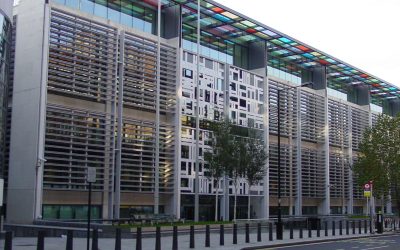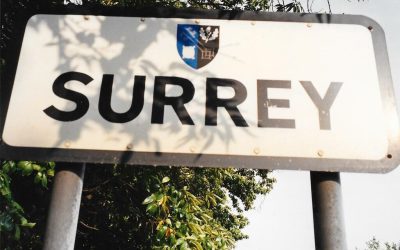In this update
CLLR SAM CHAPMAN-ALLEN: Welcome to our new councillors
MUST-READS: Our round-up of media and policy highlights
WALLACE SAMPSON: How to bring about a more diverse and inclusive leadership
NOTICEBOARD: Essential diary dates and opportunities
DCN EXECUTIVE BOARD UPDATE: What our leaders discussed on 22 May

Welcome to our new councillors!
By working together, we are stronger
Cllr Sam Chapman-Allen, Chairman, DCN: Leader, Breckland Council
Attention has turned to who could win seats at the forthcoming general election, but I want to focus this month on those who entered local government for the first time at the 2 May local polls.
While Westminster may have more grandeur, a common complaint among some of the MPs I meet is their inability to make a difference. This is rarely the case among DCN councillors.
As those of us who have been on a council for some time will know, there are few roles which put you quite so central in your community. People come to us seeking support and guidance. This can range from concern about impending homelessness to information on how to work with the council to bring about jobs and growth. Despite the constraints under which our councils operate, more often than not, we are able to make a difference.
So to those new councillors – of all parties, of all councils – I want to welcome you into the DCN family. Congratulations on winning the trust of your community! You are in a role in which you can become a lynchpin of your place and build a political legacy of enhancing local wellbeing and prosperity.
However, together we can be even stronger and effective. This is why DCN exists.
DCN works to help you overcome your challenges, for instance by sharing information, facilitating collaboration or organising networking at which our shared concerns can be discussed.
We also represent your concerns and serve as your advocates to ministers, civil servants, parliamentarians, partner organisations and the wider world.
And we produce evidence-based research to assist us in some of our most profound challenges.
However, to perform these roles optimally we are reliant on your input.
I encourage you to engage with us on the big issues, attend our events and express your concerns to us.
I was hoping at this point to say how much I’m hoping to see you at our planned sessions at the Local Government Association annual conference and our parliamentary reception commemorating 50 years of district councils. However, unfortunately, the calling of the General Election has led to the postponement of both. Fear not! We will meet soon.
We also hugely appreciate you telling DCN about the issues that you face on your council. This could be to privately share intelligence and solutions. Or it could be in a more public-facing role – could your councils offer case studies which would help us make an impact to parliamentarians or the national media?
Please get in touch with us at dcn@local.gov.uk or through your regional political or officer representatives. You can find out who’s on our DCN Executive Board or Chief Executives Group here. Ultimately, I encourage you to seek election for our executive board if you’re a politician – and I know that Trevor Holden, our chief executive lead, would encourage chiefs to become involved by standing for election to the Chief Executives Group.
I hugely look forward to meeting you, learning more about your councils and getting your full input to DCN. Welcome to the family!
MUST-READS and MUST-WATCHES: Our round-up of media and policy highlights
Bennett Institute for Public Policy: Should local authorities reorganise? A review of the evidence
Localis thinktank research on regeneration: Design for life
Gill Kneller, Chief Executive, East Hampshire District Council, in the MJ (£): Communities are the heroes of the East Hampshire story
Kathy O’Leary, Chief Executive, Stroud District Council, in the MJ (£): Keeping local government relevant and meaningful
Sarah Wilding, climate change manager, Babergh and Mid Suffolk District Councils, in LGC (£): Decarbonising buildings to reach net zero
Watford Borough Council short film showing its innovative new skatepark: 50 years of districts: boosting physical activity from childhood to adulthood
Pendle Borough Council short film showcasing its regeneration work: ‘By working together we’re achieving big things’: Pendle’s regeneration showcased

How to bring about a more diverse and inclusive leadership
The challenges of becoming a chief executive from a BAME background
Wallace Sampson OBE, former Chief Executive, Harrogate Borough Council
This is an edited version of a longer article by Wallace Sampson, which contains insight from Wallace’s own career experiences. You can read the full article here.
I was fortunate throughout my career to work for councils who believed in my ability to deliver, and I can look back on many successes with a strong focus on service improvement, the customer and communities. I was privileged to work with staff, partners and teams that delivered award-winning outcomes and provided legacy benefits.
Much has changed since I entered local government in 1983. But one issue which has changed little over the past 40 years, is how few chief executives, or senior leaders more generally, there are of colour in public service compared to the demographics of our society. A survey was undertaken in 2018 by Green Park that estimated that there were 16 persons of colour in chief executive roles in local government. Despite some changes in the last five or six years, my guess is that the changes are not seismic.
Perhaps my own experiences can offer some further insight. I was until last year the chief executive of Harrogate Borough Council in North Yorkshire. I served in that role for almost 15 years and for a lot of that time I was the only local authority chief executive from a BAME background in the whole of Yorkshire and the Humber, a region which covers a population of 5 million people.
Notwithstanding my appointment at Harrogate, it was a mixed picture to get to where I ended up. In some respects, being black has shone a spotlight on me, but my perception has been that sometimes I have had to work harder to prove myself because I am black.
For those without the mental toughness and resilience that I possess, the setbacks I experienced would be very difficult to deal with. You consider whether you should challenge and if so, how does it affect your future prospects in an environment where recruitment consultants are very powerful in the search and selection process. Or alternatively you dust yourself down and go again. There is no right and wrong in how you should approach this but situations such as this shouldn’t happen in the first place.
If we are to move towards a more diverse and inclusive workforce where the demographics of our senior leaders reflect society, how can we better support people of colour in their career progression in local government? I would suggest four things from my own personal experience, although the views of others may differ.
Firstly, without a doubt the sector has to showcase successful people of colour as role models more than we currently do. We can go further and establish specific buddying and mentor programmes for aspiring black leaders to be supported by successful leaders from the BAME community. Success breeds success and emerging leaders will gain confidence and learn from being closely associated with people that they can more easily identify with.
Secondly, we need to have a more targeted approach to spotting and nurturing emerging talent from the BAME community at the earliest opportunity. I am aware that Solace is working jointly with the Local Government Association to create a broad programme of activity around leadership and development as part of its sector support offer to local authorities. It will certainly assist the sector as a whole but, Solace’s AMPlify programme aside, very little is specifically targeted at talented rising stars from under-represented groups. Perhaps, for example, there should be targets within the National Graduate Development Programme to ensure that the cohorts from each intake reflect the diversity of our community.
Thirdly, there should be short-term placement opportunities created for aspiring leaders to be placed as heads of services and directors as development opportunities. It will be challenging to establish, but it is possible to do – indeed, the NHS has done this.
And finally, we need to work with the decision makers, particularly councillors, because not enough emphasis is placed on diversity issues in recruitment training for those that are the final decision makers and gatekeepers for the most senior roles in local government.
There are so many amazing people working in local government with great leaders at the helm that I am optimistic about the future. I hope that the sector continues to deliver on its commitment to equality, diversity and inclusion.
- This is essay is part of a collection of articles by former chief executives looking back at their careers published by Solace as part of its 50th birthday celebrations. You can read the full Rewind: 50 years of local government excellence collection here.
NOTICEBOARD: Essential diary dates and opportunities
Cancellations DCN regrets that the calling of the General Election means we have had to postpone or cancel a number of upcoming events. These are: our parliamentary reception celebrating 50 years of district councils, previously scheduled for 5 June; our webinar with Housing Minister Lee Rowley, scheduled for 11 June; and our events at the LGA Conference, scheduled for 2-4 July. We will let you know in due course whether any of these events can be rescheduled.
DCN political balance Following the 2 May elections, this is the new political make-up of the DCN Executive Board:
| Political group | % share | Number of Exec Board places |
| Conservative | 30.2% | 7 |
| Liberal Democrat | 24.4% | 5 |
| Labour | 24.3% | 5 |
| Independent | 21.2% | 5 |
| Total | 22 |
Climate training Climate Emergency UK is running a free online six-week training course for newly-elected and early-career councillors on how their councils can take effective climate action. You can find out more and register here.
DCN EXECUTIVE BOARD UPDATE: What our leaders discussed on 22 May
- DCN’s work programme: our forward plans
- Amendments to DCN’s constitution
- How DCN’s political balance changed after the local elections






